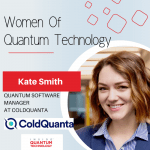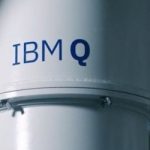Quantum News Briefs November 10: Xanadu closes $100M USD Series C to accelerate development of fault-tolerant quantum computers; SES selects Arianespace to launch EAGLE-1 satellite for Europe’s quantum cryptography; German Aerospace Center announces EUR 208.5 M Quantum Computer Contracts + MORE
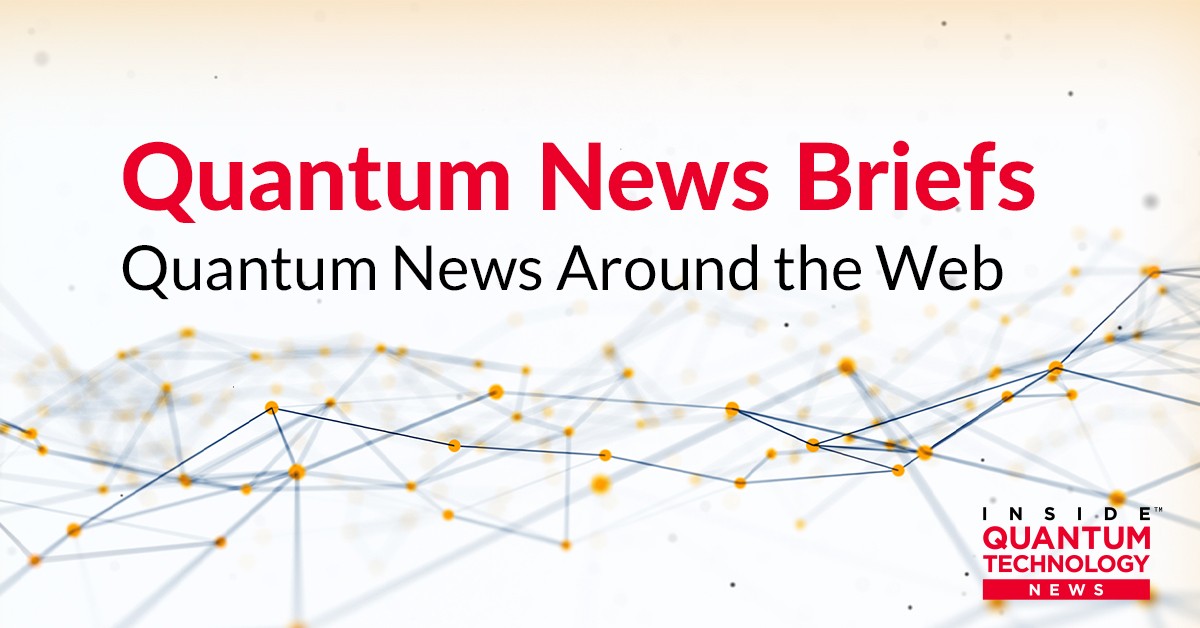
Quantum News Briefs November 10 begins with Xanadu closes $100M USD Series C to accelerate development of fault-tolerant quantum computers; folllowed by SES selects Arianespace to launch EAGLE-1 satellite for Europe’s quantum cryptography. Third is news that German Aerospace Center (DLR) announces EUR 208.5 M Quantum Computer Contracts + MORE.
*****
Xanadu closes $100M USD Series C to accelerate development of fault-tolerant quantum computers
 Xanadu (xanadu.ai) announced on November 9 it has raised $100M USD in Series C financing. Quantum News Briefs summarizes the announcement below.
Xanadu (xanadu.ai) announced on November 9 it has raised $100M USD in Series C financing. Quantum News Briefs summarizes the announcement below.
Georgian led the round with participation from Porsche Automobil Holding SE, Forward Ventures, Alumni Ventures, Pegasus Tech Ventures, Silicon Valley Bank, along with previous investors Bessemer Venture Partners, Capricorn, BDC Capital, and Tim Draper. To date, Xanadu has raised $250M USD, bringing the company valuation to $1B USD.
Georgian is Canada’s largest growth equity firm, Georgian. “We’ve been long-time supporters of Xanadu and believe they will bring the first commercially available quantum computers to market and make quantum computers useful and available to people everywhere,” said Margaret Wu, Lead Investor at Georgian.
Since its inception in 2016, Xanadu has been on a mission to build quantum computers that are useful and available to people everywhere. Xanadu’s photonic approach to building quantum computers is unique and advantageous for several reasons. Most importantly, using photonics enables the leveraging of modern chip manufacturing facilities, the application of optical components developed by the pre-existing telecommunications industry and the use of fibre optics to network photonic chips together. Such networking is needed to reach and exceed one million qubits, the scale at which useful applications can be accessed. “The continued support from top-tier investors in this uncertain economic climate is a testament to the belief in our exceptional team, our photonic technology, and our ability to execute,” said Xanadu founder and Chief Executive Officer, Christian Weedbrook.
Click here to read announcement in-entirety.
*****
SES selects Arianespace to launch EAGLE-1 satellite for Europe’s auantum cryptography
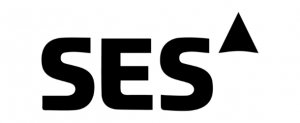 The EAGLE-1 satellite for ESA’s end-to-end Quantum Key Distribution system is to launch on the Vega C rocket from Europe’s Spaceport in French Guiana in 2024. Quantum News Briefs summarizes the announcement below.
The EAGLE-1 satellite for ESA’s end-to-end Quantum Key Distribution system is to launch on the Vega C rocket from Europe’s Spaceport in French Guiana in 2024. Quantum News Briefs summarizes the announcement below.
The EAGLE-1 satellite, which will support the end-to-end secure Quantum Key Distribution (QKD) system for Europe, will be launched for SES by Arianespace on a Vega C rocket from French Guiana as early as Q4 2024. The satellite will be placed into Low Earth Orbit (LEO). The EAGLE-1 project comprising satellite and ground infrastructure, is developed by SES and its consortium of 20 European partners, with the European Space Agency (ESA) and the European Commission support.
Under the recently-signed agreement with ESA, SES and its partners will design, develop, launch and operate a satellite-based end-to-end QKD system for the purpose of testing and validating space-based secure transmission of cryptographic keys. The first European sovereign space-based QKD system will include the dedicated low earth orbit (LEO) EAGLE-1 satellite and state-of-the-art QKD operations centre in Luxembourg. In the scope of EuroQCI, the EAGLE-1 satellite will enable early access, validation, and integration of space-based QKD for EU Member States.
“Building the EAGLE-1 end-to-end system for secure data transmission and validating the long-distance Quantum Key Distribution technology is an innovative project that will benefit the EU Member States,” said Ruy Pinto, Chief Technology Officer at SES. “We have been working with Arianespace for decades to deliver our satellites into space and are delighted for them to be onboard to launch the EAGLE-1 satellite into orbit.”
Click here to read the announcement in-entirety.
******
Researchers prototype a new generation of quantum microscopy
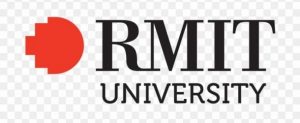 New microscopy modalities that can see electric currents, detect fluctuating magnetic fields, and even see single molecules on a surface.are becoming possible with the advance of quantum technologies. Quantum News Briefs summarizes.
New microscopy modalities that can see electric currents, detect fluctuating magnetic fields, and even see single molecules on a surface.are becoming possible with the advance of quantum technologies. Quantum News Briefs summarizes.
A prototype of such a microscope, demonstrating high resolution sensitivity, has been developed by an Australian research team headed by Professor Igor Aharonovich of the University of Technology Sydney and Dr. Jean-Philippe Tetienne of RMIT University. The team’s findings have now been published in Nature Physics.
The quantum microscope is based on atomic impurities, that following laser illumination, emit light that can be directly related to interesting physical quantities such as magnetic field, electric field or the chemical environment in proximity to the defect.
Professor Aharonovich said the ingenuity of the new approach was that, as opposed to the bulky crystals often employed for quantum sensing, the research team had utilized atomically thin layers, called hexagonal boron nitride (hBN).
“This van der Waals material—that is, made up of strongly bonded two-dimensional layers—can be made to be very thin and can conform to arbitrarily rough surfaces, thus enabling high resolution sensitivity,” Professor Aharonovich said.
To test the capabilities of the prototype, the team performed quantum sensing on a technologically relevant magnetic material—a flake of CrTe2, a van der Waals ferromagnet with a critical temperature just above room temperature.
The hBN based quantum microscope was able to image the magnetic domains of the ferromagnet, with nanoscale proximity to the sensor, and under ambient conditions—something that was believed to be impossible to date.
*****
German Aerospace Center (DLR) announces EUR 208.5 M Quantum Computer Contracts
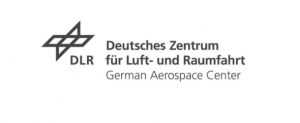
Hamburg is set to become a centre of quantum technology after the German Aerospace Centre (DLR) announced contracts worth EUR 208.5 million under which scalable quantum computers will be built at the centre from late 2023. The announcement comes just days after the senate approved EUR 34.1 million in measures to boost Hamburg’s quantum computing ecosystem from 2023 to 2028. A delighted Katharina Fegebank, Senator for Science, Research and Equality remarked, “what a week for quantum computing in Hamburg”.
Developing qubits and quantum computers
DLR is awarding five contracts for qubits based on ion traps, according to Prof. Dr.-Ing. Anke Kaysser-Pyzalla, Chair of DLR’s Executive Board. The funds should advance the construction of prototype quantum computers over a four-year period. The Technical University (TUHH) of Hamburg, which is also involved in the project, has termed quantum computing an “important key technology of the future”.
Building quantum computer prototype in sub-projects
A demonstrator with ten ionic qubits is to be built in a first sub-project late next year. The Hamburg-based NXP Semiconductors Germany, Eleqtron in Siegen and the Munich-based Parity Quantum Computing Germany are also involved in the project. Two other sub-projects by the Universal Quantum Deutschland in Düsseldorf, the consortium of Qudora Technologies in Braunschweig and NXP Semiconductors focus on the modular, scalable construction of prototypes of quantum computers with at least 50 qubits.
Disruptive potential for change in Hamburg
“Hamburg is a leading centre of quantum technology in Europe. The city offers ideal conditions for excellent basic research, application-related testing and the industrial use of new technologies,” said Dr Peter Tschentscher, Mayor of Hamburg. Michael Westhagemann, Senator for Economics, noted: “The disruptive potential for change of quantum computing is comparable to the development of digital computers in the 1970s or artificial intelligence early in the 21st century.” The development should bolster Hamburg’s quantum ecosystem in the long term.
*****
Sandra K. Helsel, Ph.D. has been researching and reporting on frontier technologies since 1990. She has her Ph.D. from the University of Arizona.


















